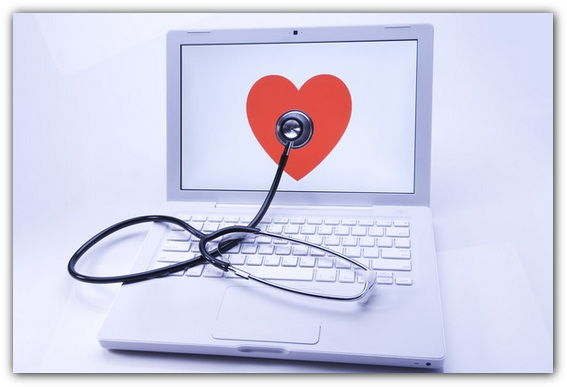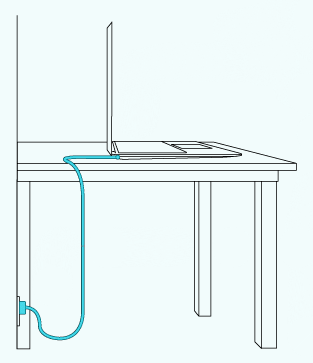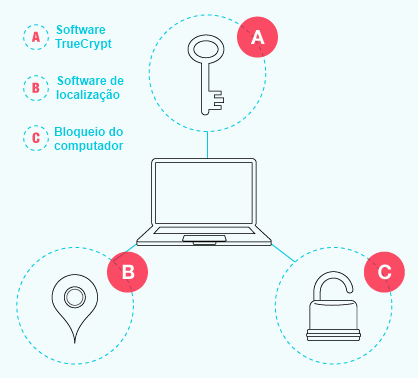The laptop is massive and, in general, requires the daily practice of transport use in different locations, store and mess up several times a day and many other actions. All this fits the normal procedures in which a laptop is designed to support, however some care must be taken.
Particularly in academia, the laptop is a tool that almost everyone, however it is a great investment that deserves the utmost care for the idea of having to buy a new one may not be achievable.

1. Always place the computer on a smooth surface and rigid

Any surface that can be smooth and rigid (even not like) to block or interfere with the movement of air inside the computer, thereby making the poor cooling. Therefore, the computer should not be placed on pillows or lap blanket.
This is a major problem in laptops, heat dissipation, and sometimes even the height of the "feet" there is enough available for dissipation.
In addition to these disadvantages, there is another men: the regular use of the computer neck due to heat transmitted, can reduce the production of spermatozoa by 40%.
2. Turn off, hibernate or suspend the computer before putting it in the bag

This is certainly an uncommon practice, however hastily tidying up sometimes does not give enough time for the computer to suspend its operation even worse ... if for some reason fails or is put a question to you and make your computer stay on until the battery is depleted.
Motion during the operation may damage the hard disk, if it is mechanical, and obviously raises the same issue mentioned in paragraph 1: Overheating is very harmful to your computer, including the battery.
3. Do not leave the computer always plugged in

Keep the battery at high capacity levels for many days can damage it and reduce its autonomy. If you use the laptop as a desktop computer, make sure you give use the battery at least 2-3 times a week. This will cause the battery to be "exercised" and not lose performance.
On the other hand, if you plan to use the computer for several days without needing the battery, you can remove it (if possible) but make sure that their capacity is around 40%. If capacity is too high or too low, can cause degradation. Nevertheless, use at least once every two weeks.
4. Clear your computer at least once a year

Excessive dirt, especially with the windows for air circulation, is the most common factor in breaking down computer performance. Use compressed air - like a can of "spray", beware of the ordinary for this air compressor has a lot of moisture - cleaner and cotton swabs to clean all the dirty places.
Generally very dust also accumulates within the computer. If you can find, look for a guide that explains how to open the casing of your computer to perform a cleanup. The replacement of sporadic thermal greases (CPU, GPU, chipset) is also a common practice to improve the performance of the cooling system.
A cooling system clogged may cause an increase of internal temperature in the range of 20 ° C, which may be sufficient to not allow the correct operation of the computer.
5. Turn off your computer regularly

With "off" I mean, not even off to hibernate or suspend. In operating systems like Windows, you must restart the computer for certain updates to take effect, some are clean "caches" and the memory is reorganized.
It is often difficult to leave the workplace to restart and soon after having to redo, but when you start to notice something in the system as the system slow or weird behavior, then it is an emergency signal to the system restart.
6. Prepare for loss or theft

The loss or theft of a laptop is something catastrophic today. The amount of personal information and criticism is immense and it is necessary that care should be redoubled. Even if it made a complaint to the police and that there is software location to get to the computer, can be quite difficult to recover a stolen computer.
The best solution is to guard the security of sensitive data and encrypt them, requiring a password or a "keyfile" to access such information. Can be used, eg as software code TrueCrypt open, or the tools are commonly found in operating system that allows the whole system encrypting data. Even if a thief be with your computer, hardly able to access private information. Also remember to install a software that allows to detect its location.
Should lock the computer even when away from providing it for little moments. According to the FBI, a computer is stolen every 53 seconds and only 3% are recovered.
7. Back up all

Anything worth having encrypted data because once the stolen computer, everything is lost. Since it is essential to use a backup system or the operating system or third party to keep protected and updated all the critical information on more than one location.
Of course, if the backup is stored on an external disk and it is stolen, all the information there is available to the thief. In short, whether run backups on a physical disk external NAS server or a cloud, you should also encrypt the information you feel is too private.
Today the price per gigabyte of storage is too expensive and there is no reason not to have its own disk backups. It is estimated that the costs of data loss in the U.S. economy is in the order of 18.2 billion dollars, that 35% of users of a computer has never made a backup and only 7% do so daily.
Published By: Pplware
No comments:
Post a Comment